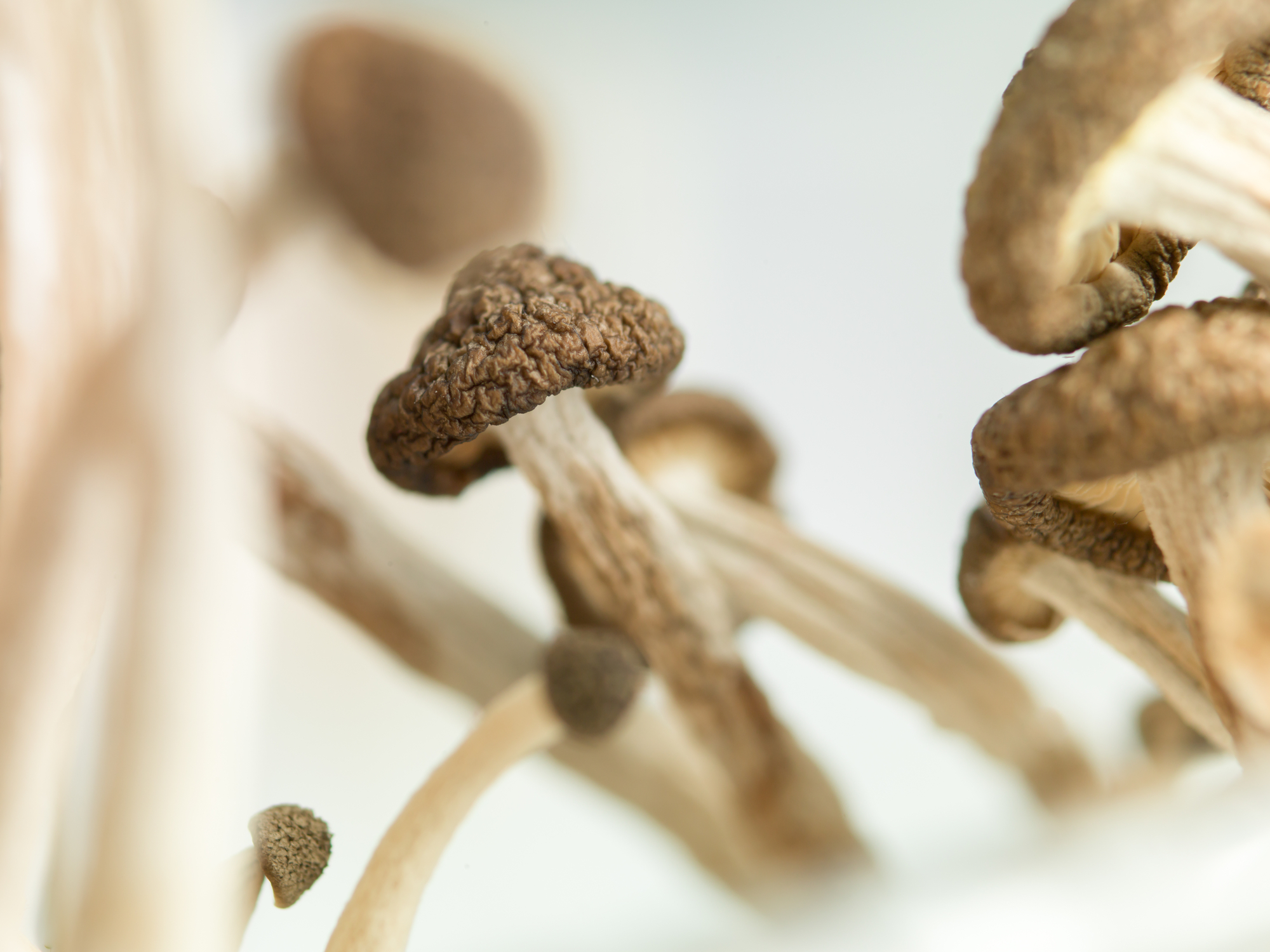

The Food and Drug Administration (FDA) has given the hallucinogenic compound psilocybin, known for giving “magic mushrooms” their mind-altering powers, a “Breakthrough Therapy” designation for the second time in just over a year. This designation, which is designed to expedite the development and review of drugs—given out only for therapies that have shown strong preliminary evidence in treating serious medical conditions—puts new pharmaceuticals on a fast track for approval and offers “intensive guidance” from the FDA.
In October 2018 the FDA granted a Breakthrough Therapy designation to COMPASS Pathways for its use of psilocybin in addressing treatment-resistant depression (TRD). As the name suggests, this condition is defined by depressive symptoms that don’t improve with the use of two or more standard therapies. Also, in March 2019, the FDA approved a TRD nasal spray (designed to mimic the positive effects of the hallucinogenic ketamine) as the first new antidepressant in decades.
But unlike that recently released spray and COMPASS Pathways’ ongoing trials, the latest potential therapy to get a boost from the FDA targets major depressive disorder (MDD). While TRD is estimated to affect about 5 million people in the U.S., at least 17 million American adults have MDD, which is more commonly referred to simply as “depression.” Depression is the leading cause of disability among Americans age 15 to 44, and affects hundreds of millions of people globally.
The latest Breakthrough Therapy designation goes to the Usona Institute, a nonprofit medical research group dedicated to “understanding of the therapeutic effects of psilocybin and other consciousness-expanding medicines.” Usona recently launched a Phase 2 clinical trial (more on what trial phases mean here) and is actively recruiting participants for an 80-person study. The trial will aim to determine the efficacy of treating depressed patients with single, one-time oral doses of psilocybin. It will likely be several years before any therapies related to these trials hit the market.
Research has already shown the effectiveness of psilocybin and LSD, which target the same receptors in the brain, in decreasing symptoms of depression and fear of death among cancer patients. Much of that research suggests that while these drugs can have a profound and positive effect on the individuals who ingest them, the key to providing lasting relief from mental illness is to offer specialized talk therapy while patients are under the influence. Researchers have seen similar outcomes in the use of MDMA, otherwise known as ecstasy, in tandem with therapy for Post Traumatic Stress Disorder.

A small 2017 study found that psilocybin treatment decreased activity in the amygdala, a region of the brain that helps regulate fear and anxiety, and helped stabilize the default mode network, which is a set of multiple brain regions that work together to help us think about ourselves and others. Dysfunction in the communication of this network have been noted in patients with Alzheimer’s, PTSD, and Autism Spectrum Disorder. In theory, this hallucinogenic compound could serve to calm negative emotions and prime patients to gain more valuable insight and longterm effects from therapy. However, possible side effects can include dizziness, nausea, vomiting, paranoia, and frightening hallucinations, so taking them in a controlled setting is crucial to their therapeutic use. Hallucinogens are not recommended for individuals with a family history of schizophrenia, as there is some concern they might trigger psychotic episodes in people prone to them.
More than 200 species of mushrooms naturally produce psilocybin, and humans have been taking them for religious, medical, and recreational purposes since before recorded history began. One 2017 survey declared them the safest recreational drug, as most serious negative side effects are the result of users mistakenly consuming the wrong species of mushroom. However, it is illegal to cultivate or possess psilocybin-producing fungi in the United States. You should not attempt to self-medicate with shrooms for a couple of reasons: It’s easy to accidentally ingest poisonous fungi that look similar if you don’t know what you’re looking for, and the powerful emotional effects of a hallucinogenic trip can backfire without the help of an expert to guide you.
